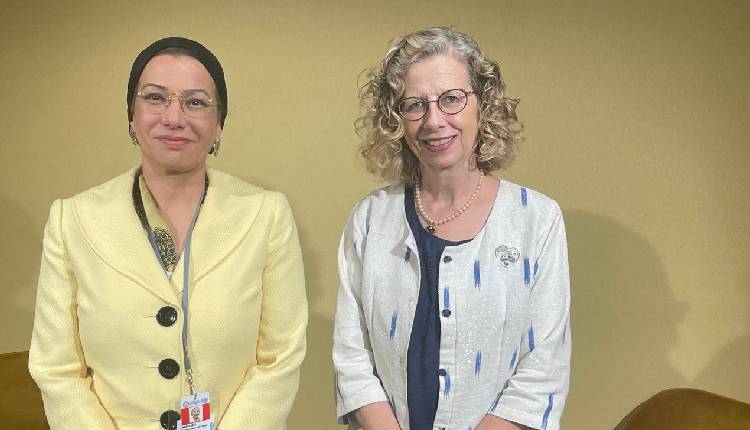Egypt is calling for the inclusion of a standalone financing mechanism in the proposed global plastic pollution treaty, as the country ramps up domestic efforts to curb single-use plastics, Environment Minister Yasmine Fouad said during the UN Ocean Conference (UNOC3) in France.
In a bilateral meeting with Inger Andersen, Executive Director of the United Nations Environment Programme (UNEP), Minister Fouad said Egypt is advocating for flexible language in the treaty to accommodate national economic structures—particularly in countries like Egypt where plastic manufacturing plays a significant role in employment and GDP.
“This treaty must take into account national circumstances,” Minister Fouad said. “Egypt is committed to reducing plastic pollution, but also recognizes the economic weight of plastic production in our local industries.”
The minister said Cairo has already taken a “major step” by introducing an Extended Producer Responsibility (EPR) framework for single-use plastic bags. The regulation, approved by Egypt’s Cabinet in February after two years of consultations, sets the stage for new fees on non-recyclable plastic and mandates stronger waste management oversight.
Egypt has launched social media and public outreach campaigns to prepare consumers and businesses for the shift. “This move positions Egypt among the countries actively addressing single-use plastic,” Minister Fouad added.
UNEP chief Andersen underscored the importance of addressing the full life cycle of plastic before implementing production bans, calling for a data-driven approach to measure recyclability, waste generation, and landfill impact.
The call for a financing mechanism comes ahead of the next round of global treaty negotiations in August. Egypt’s delegation is currently reviewing the latest draft of the treaty, and Minister Fouad has convened a cross-ministerial meeting to finalise the country’s position.
The minister also stressed the need for multilateral support to help developing countries transition away from plastic-intensive economies, saying long-term funding will be key to ensuring equitable implementation.
The proposed plastic treaty is among the most ambitious multilateral environmental efforts in recent years, aiming to curb pollution across the entire plastic life cycle—from production to disposal.
Attribution: Amwal Al Ghad English
Subediting: Y.Yasser


